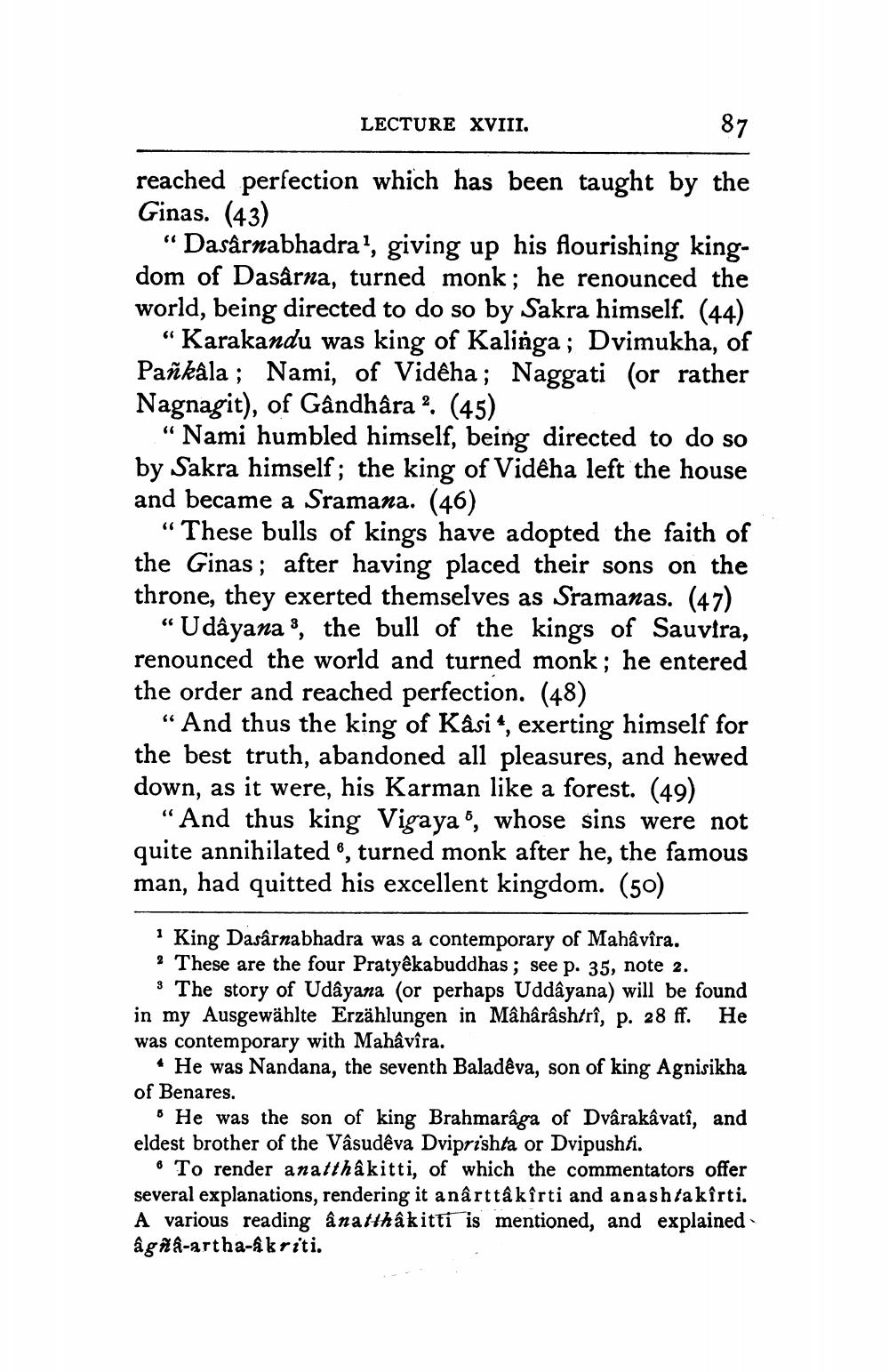________________
LECTURE XVIII.
87
reached perfection which has been taught by the Ginas. (43)
"Dasârnabhadra', giving up his flourishing kingdom of Dasârna, turned monk; he renounced the world, being directed to do so by Sakra himself. (44)
“Karakandu was king of Kalinga ; Dvimukha, of Pañkåla ; Nami, of Vidêha; Naggati (or rather Nagnagit), of Gândhara ? (45)
“Nami humbled himself, being directed to do so by Sakra himself; the king of Vidêha left the house and became a Sramana. (46)
"These bulls of kings have adopted the faith of the Ginas; after having placed their sons on the throne, they exerted themselves as Sramanas. (47)
“Udayana, the bull of the kings of Sauvira, renounced the world and turned monk; he entered the order and reached perfection. (48)
“And thus the king of Kâsi“, exerting himself for the best truth, abandoned all pleasures, and hewed down, as it were, his Karman like a forest. (49)
"And thus king Vigaya”, whose sins were not quite annihilated ®, turned monk after he, the famous man, had quitted his excellent kingdom. (50)
* King Dasarnabhadra was a contemporary of Mahâvîra. 2 These are the four Pratyêkabuddhas; see p. 35, note 2.
3 The story of Udayana (or perhaps Uddâyana) will be found in my Ausgewählte Erzählungen in Mâhârâshtrî, p. 28 ff. He was contemporary with Mahâvîra.
• He was Nandana, the seventh Baladêva, son of king Agnisikha of Benares.
• He was the son of king Brahmaraga of Dvârakâvatî, and eldest brother of the Vasudeva Dviprishta or Dvipushti.
6 To render anatthâkitti, of which the commentators offer several explanations, rendering it anârttâkîrti and anashta kîrti. A various reading ânatthâkitti is mentioned, and explained agaa-artha-akriti.




